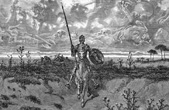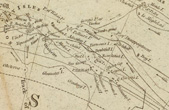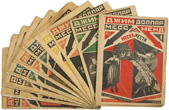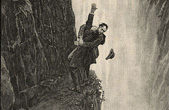Adventure and Fiction
Because it is expected that adventure narratives report extraordinary and at least statistically less than likely events, as a matter of principle they are suspected of having fabricated the occurrences. That is why, within modern debates, certain sujets associated with adventure (for instance the fairy-tale elements of courtly romans) and certain associative techniques (like the fate-driven, episodic connections) appear to be exemplary cases of fictionality.
With this, they form the negative counter-foil of a ‘realistic’ literature, which is just as fictional, but has techniques to obscure its status. At the same time, the ambiguous designation as ‘adventure’ can never be exclusively limited to the field of literary fiction. Precisely because something fabricated clings to adventures, the adventurousness of the factual is particularly attractive for modern readers. This is utilized by factual texts – first and foremost from the field of travel literature – by insisting that the depicted events are just as ‘adventurous’ as novels, but actually occurred.
The dubious reality status of adventure, which will be examined within this focus area of the research group, has repeatedly become the object of literary self-contemplation since the early modern period. Aristo and Cervantes, who pointedly display the phantasmal and fabulous character of adventure, offer an entry point. But even travelogues like Gulliver’s Travels and the “factographical” literature of the Late Soviet Avant-Garde are part of this history of reflection and as such are on the research group’s agenda.





